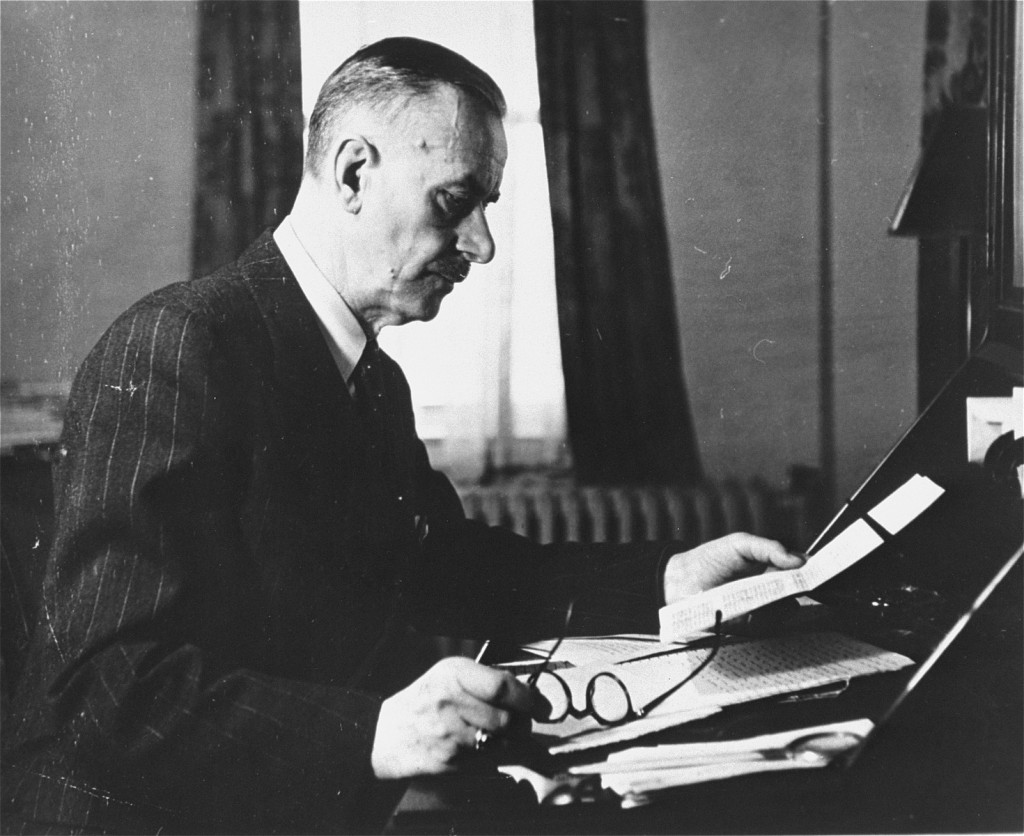
Thomas Mann
In 1933, Nazi students at more than 30 German universities pillaged libraries in search of books they considered to be "un-German." Among the literary and political writings they threw into the flames were the works of Thomas Mann.
Excerpt
Somehow or other, there was a stiffness, a lack of innocent enjoyment. These people...displayed much self-respectingness; towards each other and towards the foreigner their bearing was that of a person newly conscious of a sense of honor. And wherefore? Gradually we realized the political implications and understood that we were in the presence of a national ideal. The beach, in fact, was alive with patriotic children—a phenomenon as unnatural as it was depressing.
—Mario und der Zauberer (Mario and the Magician), Thomas Mann, 1930
Which of Thomas Mann's Works were Burned?
Von deutscher Republik (The German Republic)
Deutsche Ansprache: ein Appell an die Vernunft (An Appeal to Reason)
Who was Thomas Mann?
German author Thomas Mann (1875–1955) was awarded the Nobel Prize for Literature in 1929. He achieved worldwide popularity with works such as Buddenbrooks, Death in Venice, and The Magic Mountain. His 1930 novella Mario and the Magician used allegory to expose the dangers of dictatorship. In 1933 only his political writings were blacklisted and burned, but after Mann declared solidarity with other exiled writers, the Nazis stripped him of his citizenship and rescinded his academic honors. Mann went into exile in 1933 and emigrated to the United States in 1939. In his frequent wartime radio addresses, Mann repeatedly recalled the book burnings and had himself introduced, both in broadcasts on US networks and in speeches intended for Germany, as a writer "whose books had been burned." Mann returned to Europe in 1952 and settled in Switzerland, where he died in 1955.
Critical Thinking Questions
- If Jews were the principal target during the Holocaust, why were books written by non-Jewish authors burned?
- How did the German public react to the book burnings? What were some of the reactions outside of Germany?
- Why do oppressive regimes promote or support censorship and book burning? How might this be a warning sign of mass atrocity?

